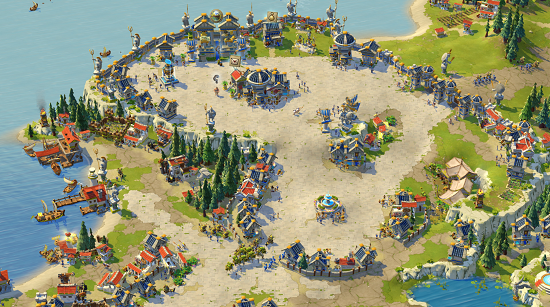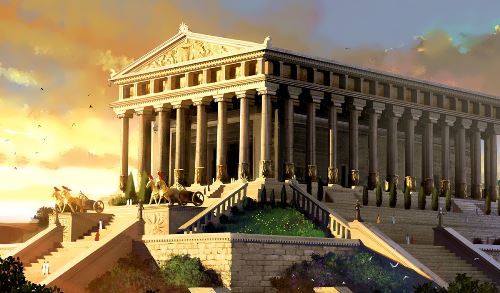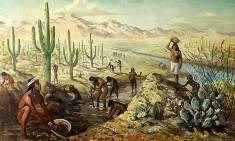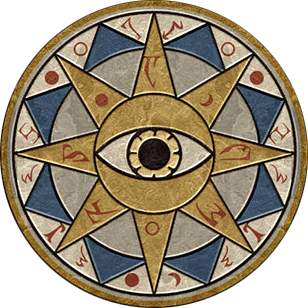
The sun rises on a new world- a world not like that you may know. Shattered by a catastrophic impact not long after the extinction of the dinosaurs, Earth is not as it should be. This impact, a star falling to earth, changed not only the shape of the world, but also her content; this star bore strange light and strange crystals, warping and altering the planet where humanity slowly arose. Continents were broken, minds shattered, even animals and plants twisted and changed. It is a strange world, one in many ways hostile to humanity- but in the end, it is your world.
You stand forward as one of the leaders of a great city of men. It has been many centuries now since the first tribes emerged in the impact of the Cataclysm, family groups formed from scattered wanderers and survivors, and now civilization in earnest is rising from those embers. Men ply trade upon the waves of the sea, either propelled by oars and scarred backs, or the might of sails. Caravans roam savage lands, making fortunes for their owners if they are not devoured by ferocious beasts. The first priests, and god-kings, and republics lay claim to the passages of the world beyond the sight of their doorways, and bronze-armed warriors march across the hinterland.
To be a man in such times is to be given glorious potential, but also great danger. Civilization is fragile, and dark things lurk both in the hearts of men and in the wilds of the world. Will you rise to greatness alongside your kinsmen, or will you falter and be forgotten? Come, and tell the tale of the Ascent of Man.
19th of Redleaf, Year 327 of the Common Era
Under Nemossos' feet the deck of the Treader rocked rhythmically, born aloft by the waves of the Endless Ocean even as the white cliffs of Rivermouth came into view. The young sailor could tell exactly where they were from the shape of the headlands, from the hillocks of wooded copses that were scattered about the small settlement, from the smoke that rose from the noonday cookfires to smudge the sky. In the hold of the cargo vessels rode blocks of graven marble, procured by the Hierarch for use in new engravings about the Sunhold- it had been a long and dangerous journey, but the sturdy Treader was more than up to the challenge.
"Looking forward to hearth and home, kinsman?"
Nemossos Seaward merely nodded, barely turning to glance at the familiar figure that had stepped forward to peer at the horizon alongside him. Paulus was some sort of distant relation, based on his Whitestone ancestry, but 'kinsman' was about all the designation that the two men had been able to puzzle out. Not that it really mattered to the captain of the vessel; as long as Nemossos remained good at his job as crew chief, the blood relationship meant much less than his competency.
"Aye", he said after a few moments, feeling as if the nod had not been enough in the way of response. "I have been too long away from my wife, and daughters. Celia will be seven winters in age in merely a month more, and it seems like just yesterday that she was given to me. I am growing old, here upon the salt."
Paulus laughed, beard flecked with the white of age and the white of sea-spray in almost equal parts betraying his thoughts on the matter.
"You'll be looking like old parchment in no time, lad, never you fear. And you'll be getting right rich while you do so."
To the eyes of a landsman, the younger sailor already looked the part. His normally olive-swarthy skin had darkened to a shade more akin to leather than that of human flesh, and it was tough to the touch on account of sun and wind. But to the venerable fishermen and sailors who plied the waters of the Bay of Swords and even the Great River, he still seemed a supple pup. Such was the way of the world- one thing to one set of men, another thing to another, and neither vantage finding the truth of the situation as the man himself saw it.
But rich they would be getting, and that was true. Trade had always been prosperous, and though to sail as far afield as the lands of the Zhou and Lordaeron was hazardous- winter storms never fully left those chilly northern climes- it could also fill a man's pouch with silver as quick as a blink.
The Treader cut onward, other nimble sailors now trimming her sail to take her in towards the shoreline, and Rivermouth, the first settlement of the Hvasskyn and the Hierarchy. It was good to be home.














